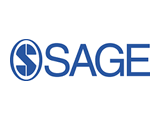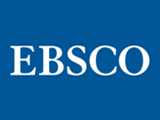Supporters of open academic content have long touted its ability to widen the impact and productivity of scholarship while relieving cost pressures in academia. While the development of open access (OA) publishing and Massive Open Online Courses (MOOCs) have been labeled a disruption to publishing and the academic community, a new study out today in SAGE Openfinds that OA has a more tempered impact on scholarship while the impact of MOOCs on teaching is more severe.
Researcher Richard Wellen found that while OA advocates’ arguments are based on principled commitment to openness for the academic community, current advances in OA publishing are driven by a strategic commitment to maximize research productivity, which ultimately tempers its ability to disrupt academic output.
“There is now near unanimity among national research granting councils – and the politicians that oversee them – that OA can help ensure the maximum economic and social impact for publicly funded scientific research,” Wellen wrote. “In this respect, policymakers appear to be interested in reforming the traditional publishing model without necessarily disrupting the academic commons which that model is meant to serve. “
Wellen went on to examine how “gold” and “green” OA models and OA megajournals impact the costs of research and may prompt changes in scholarly communication that challenge the long-held desire to be published in a prestigious journal.
“Journals competing for rank may be tempted to publish ‘hot papers’ at the expense of quality or reliability … Prestige-driven competition creates a publication bias that favors positive results, encourages reporting of statistical anomalies and devalues heterodox perspectives,” Wellen wrote. “Open access megajournals, such as PLoS One, Scientific Reports, Springer Plus and Sage Open have begun to create an alternative market segment to both high prestige OA journals and high priced subscription journals.”
Through his analysis, Wellen concluded that OA megajournals are an innovative way to address costly review cycles and streamline hierarchical publishing options while maintaining quality in research. Still, he found that they are not likely to fully replace upper-tier research journals because the research community perceives these journals as a tool to identify new important research.
“The research community has a good deal of autonomy, which means that the growth of open access is likely to be tempered in areas and fields where new services and service providers are not seen as helpful partners with the academic community.”
Wellen found that MOOCs conversely, have had more of a disruptive impact on the academic community, in part because they define higher education institutions as a barrier to improved productivity and because the content designed for MOOCs has been found to be standardized, homogenized, and safe in order to lower costs and heighten automation.
“It is not surprising that MOOCs have become highly controversial symbols of commodified education, educational stratification, deprofessionalized academic work and threats to academic autonomy,” Wellen wrote. “More than anything, MOOCs have sharpened existing political battle lines.”
Wellen discussed the broader implications of the development of open academic content:
“Openness is more than a high-minded principle implicit in academic work and research or a value implied by treating higher education as a public good,” he stated. “Openness in a digital age implies that more academic services and content will be portable and that, for better or worse, this changes the kind of policies and institutional forms which are available to academic communities.
Find out more by reading the full article “Open Access, Megajournals, and MOOCs: On the Political Economy of Academic Unbundling” in SAGE Open here:http://sgo.sagepub.com/content/3/4/2158244013507271.full.pdf+html
































